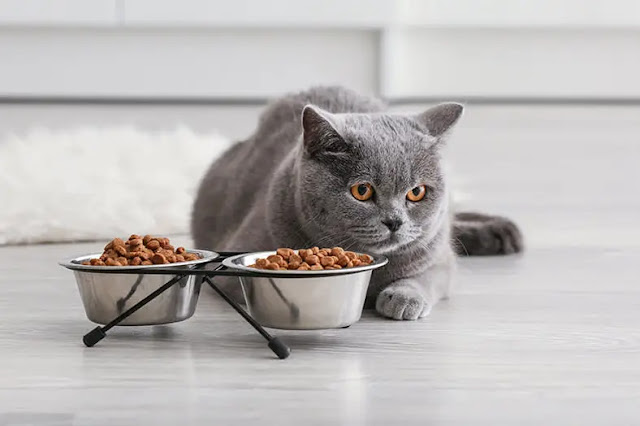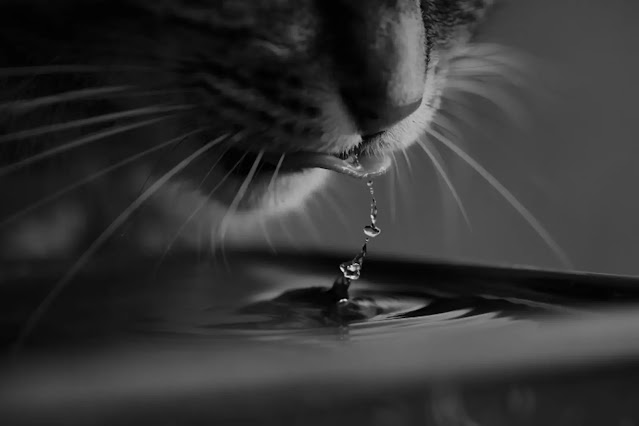Sometimes cats are very selective when it comes to food, and sick cats may go without food because of the disease itself. Other times, cats may lose their way home, or get stuck in a place where it is difficult for them to find food. Regardless of the reasons why your cat may stop eating, you may be concerned about your pet’s health, and wonder how long your cat can live without food or drink, so here’s what you should know about your pet.
Reasons why cats don’t eat
Cats can stop eating for many reasons, including:
- Disease: Cats may lose their appetite due to certain diseases, such as gastroenteritis, diarrhea, dehydration, vomiting, and constipation.
- New food: Some cats may refuse to eat new types of food, either because they contain ingredients that cats do not prefer, or because they may cause problems in the digestive system.
- Modern vaccine: The vaccine causes cats to have a temporary disease, and although this is the natural effect of the vaccine for its role in stimulating the cat’s body to form immunity, loss of appetite is also a symptom.
- Dirty bowls: Cats refuse to eat from dirty bowls, in addition, they may be a source of pathogenic microbes, which affect the health of cats.
- Aging: Cats’ appetite and ability to eat decrease as they age.
How long can cats go without food?
Adult cats often need to eat every day and shouldn’t be denied access to fresh food for an extended period. But she can stay without food for a period that varies from one cat to another, depending on her age and health, and the reason for her cessation of food. In general, cats can go without food for 7-14 days, if they have a water source. However, in the absence of protein, the cat is unlikely to survive more than 3 days, even with a water source. In the absence of a water source, the cat may not survive more than 3 days.

What happens if the cat does not eat?
Some may forget that cats are originally from the feline family, which includes a wide range of predatory mammals, meaning that cats are carnivores, that is, they need protein to survive. Without a source of protein, the cat will live for a maximum of 4 days, then the cat’s organs will gradually begin to fail. So why?
The main role of the liver in cats is to perform a set of functions, the most important of which are:
- Protein synthesis.
- Production of chemicals needed for digestion.
- Detoxification of the body.
- Important in the metabolism process.
- Emulsification of fats;
- Production of clotting factors.
But it differs from the liver of humans and dogs in its very weak ability to support the body with energy in cases of hunger or malnutrition. When cats remain without food for more than 24 hours, the body automatically transfers fat to the liver to convert it into lipoproteins for energy, but it is unable to convert the large stock of fat, so it is not processed, and it is released into the liver efficiently, and thus the infection of steatohepatitis. Since overweight cats have more fat to break down, they are more likely to develop fatty liver.
Due to the loss of the liver’s ability to process red blood cells as a result of fatty hepatitis, the yellow pigment involved in the formation of red blood cells is released into the bloodstream, and thus yellow eyes are observed. Feline steatohepatitis can lead to serious complications and then death.
What happens if cats don’t drink?
According to veterinarian Claudine Sievert, a veterinarian at the Stay Center, water is essential for the functioning of the body’s cells and the health of the organs:
- Maintains healthy brain and blood circulation.
- Promotes metabolism.
- Improves digestion and prevents constipation.
- Use urine to rid the cat’s body of pollutants.
- Maintains the pH level within appropriate limits.
If cats remain without water for 24 hours, the cat will gradually become dehydrated, and after a few days the electrolyte balance in their body will be imbalanced, and the body’s organs will fail.

So, cats can go without food or water for a certain time, but it is not recommended to let them go for a long time without access to these essential resources. Proper nutrition, hydration, and healthy socialization are essential components of a healthy cat’s life. If you have any concerns about your cat’s health or behavior, it’s always a good idea to consult a veterinarian.